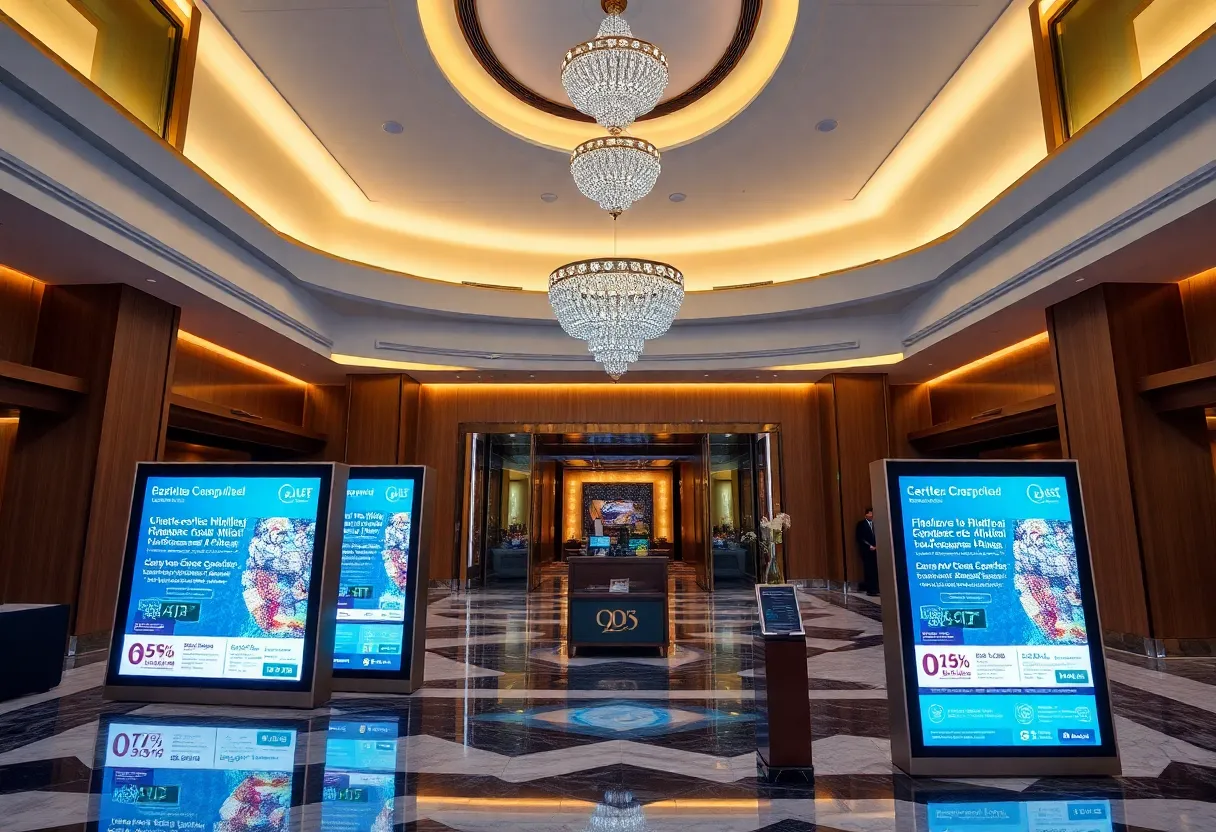

A glimpse into the future of hospitality: personalization through digital marketing automation.
Article Sponsored by:
Real Internet Sales is a digital marketing agency located in Columbia, South Carolina. We specialize in website design and development, SEO, social media management, online advertising, AI integration, and workflow automation. Our services also include affiliate marketing and digital strategy.
Real Internet Sales also offer specialized programming for real estate firms, using IDX and RETS feeds to automatically populate MLS properties on their websites for improved property listings and sales. We also work with clients in the restaurant, tourism, and e-commerce industries to enhance their digital presence and streamline operations.
In a highly competitive hospitality market, personalized marketing is essential for hotels aiming to thrive. Guests now expect hyper-personalized experiences tailored to their needs. Hotels must adopt data-driven strategies and digital marketing automation to enhance guest engagement and improve direct bookings. This article explores the shift toward hyper-personalization, the influence of Online Travel Agencies, and the role of AI and automation in hotel marketing.
In today’s fast-evolving hospitality landscape, it’s hard to ignore the significance of personalization. Guests now expect experiences tailored just for them, making personalized marketing the new gold standard for hotels. No longer can hoteliers rely on the old “build it and they will come” mentality; the competition is fierce, and it’s time to step up the game.
Demand for a hyper-personalized travel experience has soared over the past few years. Travelers are not just looking for a place to stay; they seek uniquely crafted experiences that speak to their needs and desires. As hoteliers, delivering targeted and timely marketing across various channels is not just a preference anymore—it is a necessity.
Recent research reveals that travelers engage with travel content for over five hours in the 45 days leading up to their booking. That’s a lot of time spent online, exploring every nook and cranny of potential options! This increasing browsing time highlights the need for hotels to establish a robust and engaging online presence. Whether it’s social media, blogs, or review sites, being visible on multiple platforms is crucial for conversion.
Since the late 1990s, the rise of Online Travel Agencies (OTAs) has dramatically reshaped hotel marketing strategies. On one hand, OTAs can help hotels reach a wider audience; on the other, they often control guest data—something that can create ongoing tension between hoteliers and these platforms. What’s increasingly clear is that direct bookings allow hotels not only to boost revenue per booking but also to build stronger, more meaningful relationships with their guests.
Finding a happy medium between direct bookings and OTAs is vital for enhancing a hotel’s reach while maximizing revenue. Using OTAs strategically can attract first-time guests who may later return as loyal direct bookers. It’s all about creating that first impression and ensuring visitors have a reason to book directly next time.
So, how can hotels master this balancing act? Enter digital marketing automation and data integration. These powerful tools allow hotels to tailor their marketing messages and scale their efforts effectively. The ability to deliver relevant content based on guest preferences can significantly enhance engagement.
Moreover, digital marketing technology enables cost-effective, measurable campaigns that outshine traditional methods. Hoteliers can track and optimize their marketing spend in real-time, leading to better return on investment (ROI) and overall campaign efficiency.
It’s essential for hotels to critically assess their marketing budget allocation. Interestingly, many hotels find that social media often consumes a larger slice of the pie despite its modest contribution to bookings. Instead, focusing on targeted distribution channels like pay-per-click (PPC) advertising could yield better results.
Artificial Intelligence isn’t just a buzzword; it’s making waves in the hospitality industry. From chatbots to personalized recommendations, AI technologies can significantly improve operational efficiency and enhance guest interactions. The days of manual responses and guesswork are fading as hotels harness the power of first-party data to create targeted marketing strategies.
Despite the proven benefits of technology, the hospitality industry is still lagging behind other sectors like retail and entertainment when it comes to adoption. However, many hoteliers are now recognizing the opportunity in integrating sales, marketing, and revenue management. This holistic approach can pave the way for a successful and adaptive strategy.
As we navigate through increased inflation, travelers are becoming savvier and more focused on finding better deals on OTAs. This means that direct bookings are more crucial than ever. By harnessing technology and leveraging data-driven strategies, hotels have the ability to foster robust relationships with their guests—setting the groundwork for future success.
The message is clear: adopt digital marketing automation, embrace data analytics, and prioritize personalized guest experiences. Those who seize this opportunity will not only survive in the competitive landscape but thrive.

7001 St Andrews Rd #329 ,
Columbia, SC 29212,
United States
Phone: (+1) 803 708 5514
News Summary The Pigeon River Country State Forest in Michigan has been severely impacted by…
News Summary Corktown community is set for a significant transformation as Michigan Avenue undergoes a…
News Summary The Trump administration has accelerated the approval process for Enbridge Inc.'s pipeline tunnel…
News Summary A tragic accident in Ann Arbor resulted in the death of a 64-year-old…
News Summary Soroptimist Park in Wayne, Michigan, is an exhilarating family-friendly destination featuring inclusive play…
News Summary The recent State of the Cities address in Farmington brought together over 400…